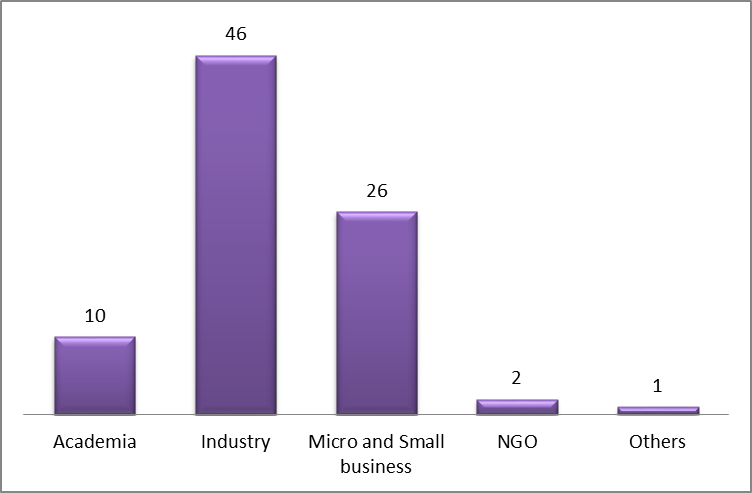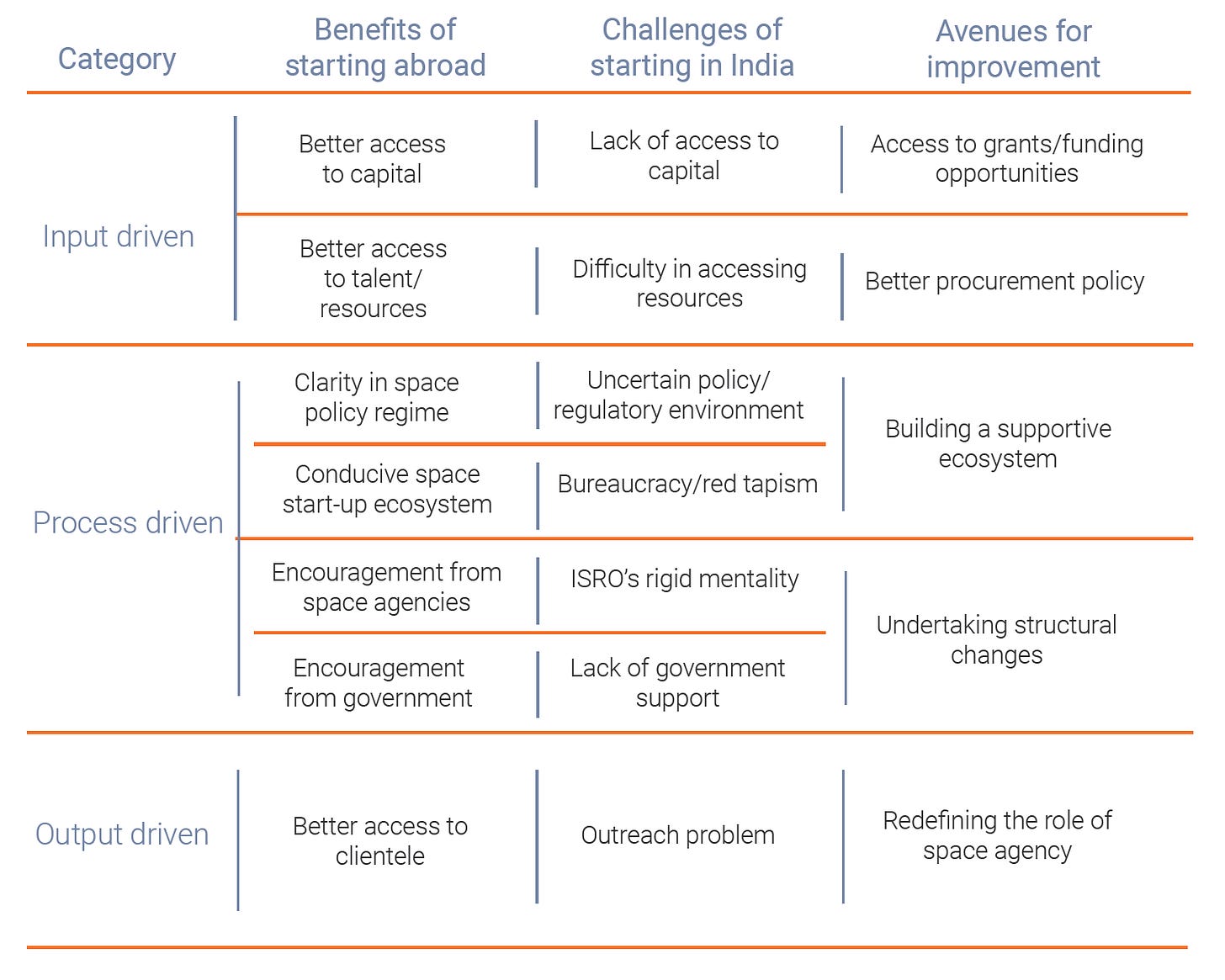To me, spotting a planet light years away, or catching the International Space Station zoom past in the night sky has simply been extraordinary. But the progress this sector has seen globally - seems to have re-defined the term “extraordinary”. 2022 was quite the year for this sector. NASA launched Artermis 1 - kickstarting an effort to establish the “first long-term presence on the Moon”1; and, two billionaires (Elon Musk and Jeff Bezos) went to space and safely returned in reusable vehicles to Earth the same day in two different spaceplanes.
“The rapidly developing market for space tourism is expected to reach roughly $400 million in the next decade.”2
However, the Indian government doesn’t seem as fascinated with the idea. In July 2022, Minister of State (Independent Charge) Earth Sciences, Dr. Jitendra Singh told the parliament that, “at present, there are no laws governing space tourism in the country and there are no plans to make a law specific to space tourism”. 3
Regardless, there’s no doubt that the Indian space ecosystem has made remarkable progress. While the state is pushing the limits of the stratosphere with ISRO - it is also promoting space technology - be it through ideating the vision of STPs (Space Technology Parks) throughout the country4, or establishing ISA (Indian Space Association) and IN-SPACe (Indian National Space Promotion and Authorisation Centre). While this is a significant move for the sector, it may not have reached its true mark yet.
Consider IN-SPACe - the autonomous agency in the Department of Space, designed to act as a single-window agency for all space sector activities for private entities.5 While the entity was instituted in 2020 - the number of applications IN-SPACe has received, as per its dashboard (as of February 2023), is still 15 shy of 100.6

While it is not clear if the numbers are only of one year alone or cumulative to date - I find this statistic very hard to believe.
A few key reasons behind this trend can be found in Spaceport Sarabhai’s October 2022 report titled, “Why do Indian Founders in the Space Industry start their start-ups abroad?”. A succinct summary of the key contours of this analysis is as below.
A few particular factors stood out to me from this report.
Talent Bank: A 2020 estimate reported that India produces 15 lakh engineers (1.5 million) every year.7 However, despite the strength in numbers - the report points out: “the space industry is hardly able to attract and retain any of this talent. The entrepreneurs reported that the graduates of these courses do not find it interesting to join space start-ups. Further, they also reported a lack of expertise in core areas such as remote sensing and earth observation among others.”8
Photo by ThisisEngineering RAEng on Unsplash Role of state space agencies: The report highlights that both NASA (National Aeronautics and Space Administration) and ESA (European Space Agency) have deep tech incubators that act as a “one-stop solution for all their challenges.”9 However, the report pointed to “the rigid mentality” of ISRO -
“Majority of the respondents reported that it was very difficult to obtain already existing satellite data from ISRO. This added to the existing bureaucracy. There were no proper channels to automate and obtain satellite data which could be beneficial for operations. Unfortunately, as an alternative, data was being obtained from other space agencies such as NASA and ESA.”10
Now, it is only fair to note that ISRO has collaborated in the past with the industry extensively. In fact, at Carnegie India’s 2022 Global Technology Summit, the Associate Scientific Secretary from ISRO did mention that: “If we see a typical launch vehicle or a satellite, 80% of this comes from industry and only 20% value-addition takes place in-house inside ISRO”.11
But, for the entrepreneur, betting to make it big in the market - is a steep climb.
Unclear/ Absence of Policy Infrastructure: The report underlined that start-up founders are not happy with the space-tech ecosystem in India.
“This was characterised by absence of concrete and non-discretionary policies. As a result, the founders feel that no one in India (including investors, government or space agencies) is willing to bet on their ideas. This attitude has let down multiple Indian entrepreneurs from setting up their start-ups in India. This problem is further aggravated due to the lack of coordination between government, the policy maker (ISRO) and the corporates.”12
Furthermore, the report finds that, “For start-ups to communicate and interact with the machinery/products that are launched from the Indian space sector, there are no clear rules relating to the spectrum. The start-ups do not have clarity on how to obtain licences and communicate once their products are sent to space.”13
The absence of these fundamentals leaves the Indian entrepreneur handicapped. Meanwhile, the competition isn’t taking any breaks. Tarun Khanna (who writes on
) and academics from the Harvard Business School note the progress in this sector on the other side of the globe in their article titled “Your Company Needs a Space Strategy. Now.”“Beyond R&D, many companies are working to usher in a new era of manufacturing that uses the unique environment of space. Companies such as Made In Space (part of Redwire) and Varda plan to build in space, eliminating the need to design satellites and other space infrastructure to survive the violent launch process. Doing so would open up entirely new possibilities for the shape, functionality, and cost of space assets.”
In fact - they also point out that “In May 2022, the start-up AstroForge raised $13 million, and it’s betting that the time is right to make asteroid-mining a reality.”14
You see, the idea is to provoke both the Indian entrepreneur and the state - to make space liberalization work. Maybe loosen it up a bit more, while at it.
NASA. “NASA: Artemis.” Accessed February 11, 2023. https://www.nasa.gov/specials/artemis/index.html.
Weinzierl, Matthew, Prithwiraj (Raj) Choudhury, Tarun Khanna, Alan MacCormack, and Brendan Rosseau. “Your Company Needs a Space Strategy. Now.” Harvard Business Review, November 1, 2022. https://hbr.org/2022/11/your-company-needs-a-space-strategy-now.
“Government Says, at Present There Are No Laws Governing Space Tourism in the Country and There Are No Plans to Make a Law Specific to Space Tourism.” Accessed February 11, 2023. https://pib.gov.in/pib.gov.in/Pressreleaseshare.aspx?PRID=1845769.
Space Technology Parks, Indian Space Association, URL:https://ispa.space/assets/pdf/Space-Technology-Parks-To-Energize-Aatmanirbhar-Bharat-in-Space-Domain.pdf.
“About Us > IN-SPACe - IN-SPACe.” Accessed February 25, 2023. https://www.inspace.gov.in/inspace?id=inspace_about_inspace.
“IN-SPACe NGE Dashboard Page - IN-SPACe.” Accessed February 25, 2023. https://www.inspace.gov.in/inspace?id=inspace_nge_dashboard.
The Times of India. “Only 3% Engineer Graduates Get High-Quality Tech Jobs in India: Report,” July 16, 2020. https://timesofindia.indiatimes.com/education/news/only-3-engineer-graduates-get-high-quality-tech-jobs-in-india-report/articleshow/76998063.cms.
“Why Do Indian Founders in the Space Industry start their start-ups abroad?, Spaceport Sarabhai, October 2022, page 20, URL: https://www.sia-india.com/wp-content/uploads/2022/11/Report_2022_Spaceport_SARABHAI.pdf.
“Why Do Indian Founders in the Space Industry start their start-ups abroad?, Spaceport Sarabhai, October 2022, page 17, URL: https://www.sia-india.com/wp-content/uploads/2022/11/Report_2022_Spaceport_SARABHAI.pdf.
“Why Do Indian Founders in the Space Industry start their start-ups abroad?, Spaceport Sarabhai, October 2022, page 20, URL: https://www.sia-india.com/wp-content/uploads/2022/11/Report_2022_Spaceport_SARABHAI.pdf.
Panel: What’s New IN SPACe, 2022.
., 10:55-11:09.
“Why Do Indian Founders in the Space Industry start their start-ups abroad?, Spaceport Sarabhai, October 2022, page 20, URL: https://www.sia-india.com/wp-content/uploads/2022/11/Report_2022_Spaceport_SARABHAI.pdf.
“Why Do Indian Founders in the Space Industry start their start-ups abroad?, Spaceport Sarabhai, October 2022, page 20, URL: https://www.sia-india.com/wp-content/uploads/2022/11/Report_2022_Spaceport_SARABHAI.pdf.
Weinzierl, Matthew, Prithwiraj (Raj) Choudhury, Tarun Khanna, Alan MacCormack, and Brendan Rosseau. “Your Company Needs a Space Strategy. Now.” Harvard Business Review, November 1, 2022. https://hbr.org/2022/11/your-company-needs-a-space-strategy-now.






Another beautifully written article.